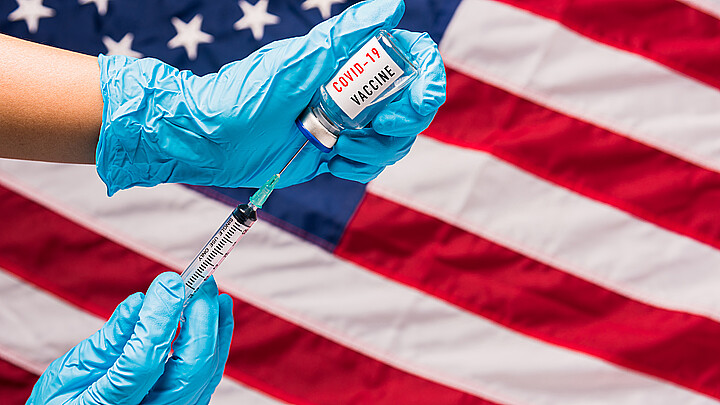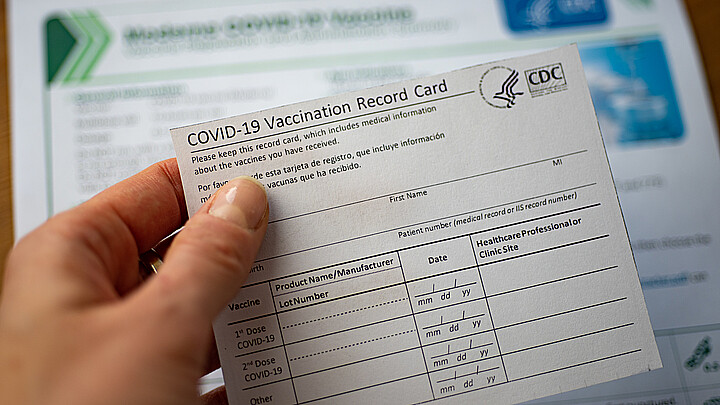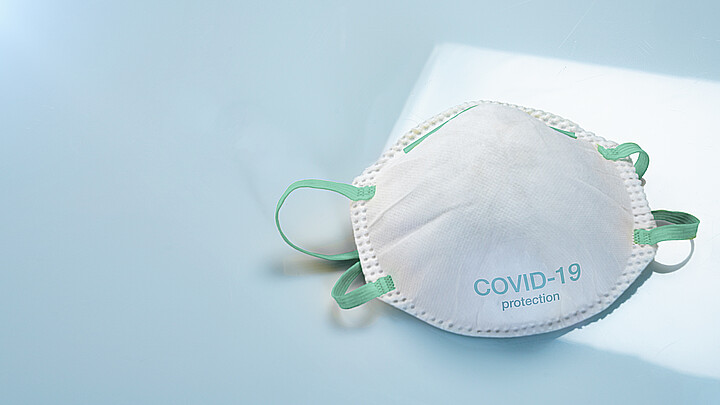Coronavirus
Indiana’s top doc: More people hospitalized now than before the vaccine
Dr. Lindsay Weaver, Indiana’s chief medical officer, said Wednesday at a press conference hospitalizations in the state are now higher than at any time in the last five years
December 30, 2021 7:23am
Updated: December 30, 2021 1:51pm
Dr. Lindsay Weaver, Indiana’s chief medical officer, said Wednesday at a press conference hospitalizations in the state are now higher than at any time in the last five years.
“I want to reiterate how challenging the situation is right now in our hospitals,” Weaver said. “We are seeing significant increases in COVID-19 hospitalizations across the entire state, in addition to all of the other illnesses and injuries we care for every day. Patients are coming in sicker with more prolonged illnesses, likely from delaying care over the course of the pandemic.”
Weaver went on to say the hospital “census” – the total number of people now hospitalized in the state – is the highest it’s been in five years, and 1,500 more people are now hospitalized in Indiana than they were during last year’s peak of hospitalizations.
The state’s online dashboard shows 3,058 people hospitalized with COVID-19 as of Dec. 27, the most recent date for which numbers are available, compared to 2,866 hospitalized Dec. 27, 2020, when people had just begun to be vaccinated.
It does not show the overall hospital census – the total number of people in the state who are hospitalized, and with what conditions. But Indiana’s largest hospital system – IU Health – said on Dec. 23 that its 16 hospitals were at 120% capacity with a total of 2,000 patients – about 550 tested positive for COVID-19.
Weaver said there are so many patients in some hospitals in the state that there are no rooms to put them in.
“I see this every time I work in the ER” she said. “We are often seeing patients being held in the emergency room for hours, and sometimes days, until a bed becomes available, which is difficult for the patient, their family and for the staff. Patients are being cared for in hallways and conference rooms.”
She and Dr. Kristina Box, the state health commissioner, both said the problem is compounded by a lack of staff, with many hospitals reporting “critical staffing shortages.”
Box said the state is keeping the vaccine and COVID-19 testing site at the Indianapolis Motor Speedway open until Jan. 22 and has partnered with the Indiana National Guard to send six-person teams consisting of two medics and four general-support people to almost two dozen hospitals across the state.
“These teams are deployed in two-week increments to help ease staffing issues while hospitals work on long-term solutions, and they can be extended an additional two weeks, if needed,” she said. “Right now, most hospitals are requesting that two-week extensions.”
In addition, Box said a 20-person Navy team has been sent to IU-Health Methodist Hospital to support operations there.
Weaver and Box appeared at the press conference with Gov. Eric Holcomb, who announced he was extending the statewide public health emergency for a 22nd time. He also talked of the important role that data has played during the pandemic, saying: “We have sought to be transparent from day one.”
More than 3.5 million people in the state are now fully vaccinated – about 54% of those who are eligible – and 1.3 million have gotten a booster shot.
But the virus does not appear to be attenuating and Box said that given the rapid spread of the omicron variant, “the situation will get worse before it improves.”
“Based on data from other countries who are further along in their omicron surge, we expect to see a very steep rise in cases over the next several weeks,” she said. “We are throwing every resource we have at this.”
Holcomb, Box and Weaver all urged Hoosiers to get the vaccine.
“More than 80% of people we’re seeing in the hospital with Covid have not been vaccinated,” said Weaver.
But the vaccine is not preventing the spread of the illness, or preventing people from getting sick, Weaver acknowledged.
“We do continue to see breakthrough cases, and they have been increasing,” she said.
She said the state has recorded more than 101,000 breakthrough cases, in which someone who was vaccinated still got COVID-19. She said even so, the vaccinations “continue to be extremely effective at preventing severe illness or death from COVID.”
“Of those breakthrough cases, just over 2,000 people have been hospitalized,” she said. “That is approximately .05% of all fully vaccinated individuals.”










